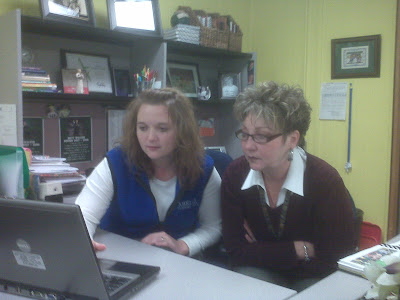Shift happens... in fact, it already has. Try to find a pay phone, a typewriter, a transitor radio. They have virtually disappeared from our cultural landscape. Ready or not... the digital future is here.
This means students coming to our schools today are digital natives. They have never known life without cell phones, video games, instant messaging, etc. In fact, this constant bombardment of digital information is what Ian Jukes refers to as "InfoWhelm."
According to Jukes, constant exposure to InfoWhelm has resulted in a different kind of learner. Quite simply, kids are wired differently. While we tend to process information in a linear, sequential manner, today's students are "hyper-linked." They are parallel processors and multi-taskers... they can listen to their iPod, text message a friend and watch a video, all while doing homework. They prefer to process pictures, sounds, video and color before text. They prefer instant gratification and immediate rewards.
As a result, schools are not always friendly places for these digital natives. Instead of being allowed to access information quickly from multiple sources, students are often subjected to a slow and controlled release of information. They are expected to gain information from pages and pages of text without picture, sound or video. Or they are expected to work independently, without the benefits of networking .
Yes, basic skills are still imporant. They form the building blocks for higher learning. But they are no longer enough. Unfortunately, many schools are not ready to address the unique needs of this digitial generation. In a way these schools are like the wall of obsolete telephones... watching in silence while shift happens.
If you would like to learn why basic skills like literacy are not enough, click
here to read Ian Juke's
21st Century Fluencies for the Digital Age.
Cheryl (a digital immigrant)



